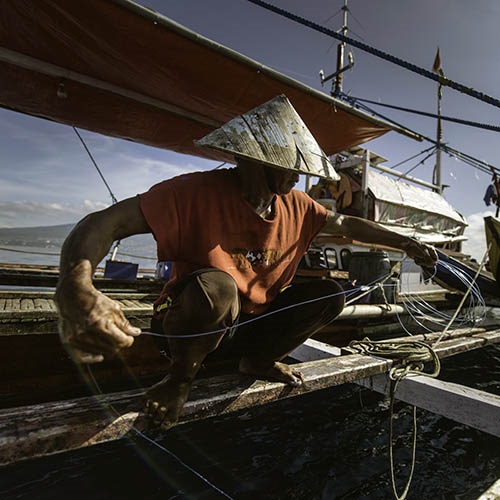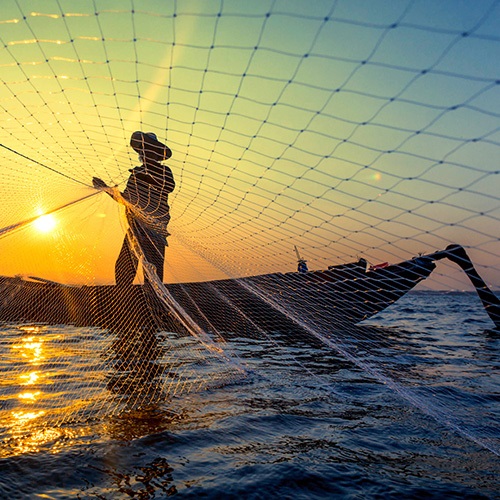WWF South Africa and the rope grown mussel fishery
Amount awarded: £49,993
This project is supporting the South African rope grown mussel fishery to meet the MSC Fisheries Standard by developing better ways to avoid harming endangered, threatened and protected species (ETP).
The fishery grows mussel spat (juvenile mussels) from the wild in Saldanha Bay in the Western Cape. The settled spat grow on ropes suspended from longlines or rafts for around a year before being harvested.
The two mussel species grown are the indigenous black mussel (Chloromytilus meridionalis) and the Mediterranean mussel (Mytilus galloprovincialis).
Together with WWF South Africa the fishery has successfully implemented a fishery improvement project (FIP) to help progress towards MSC assessment. The FIP is driven by a project steering committee that includes:
- The Department of Environment, Forestry and Fisheries (DEFF)
- Fishery representatives
- WWF South Africa
Its progress is verified through the In-Transition to MSC program which makes it eligible to apply for Ocean Stewardship Funding.
The fishery is also part of Fish For Good which is a four-year project aimed at guiding fisheries in South Africa, Indonesia and Mexico towards more sustainable fishing practices.
Monitoring impacts to the wider environment
To effectively manage and mitigate risks to the local environment, site managers have been trained to spot and report endangered species, and to develop environmental management plans.
The environmental impacts of cleaning biofouling organisms off mussel ropes is also being monitored. In aquatic environments, unwanted aquatic species are always settling on surfaces – this is called ‘biofouling'.
Theseorganisms damage the industry by settling on shellfish themselves. They can reduce the growth and survival of mussels, or make the ropes so heavy that the longlines to which they are attached break off.
To stop this happening, the fishery regularly lifts the ropes and remove unwanted organisms from the mussel lines. To ensure there is no long-term impact on the surrounding seabed habitat, a biofouling management strategy is being developed to understand and mitigate any effects.
Saldanha Bay mussels: Well-managed fishery provides long-term benefits to local community
“I am excited to receive this funding because it will increase the focus on improving the sustainability of fisheries of the developing world.”
WWF South Africa
Find out more

Our impact projects
Discover projects supported through the Ocean Stewardship Fund that are helping to grow sustainable fishing worldwide.

The Ocean Stewardship Fund
The Ocean Stewardship Fund offers grants to both MSC certified sustainable fisheries and improving fisheries.

